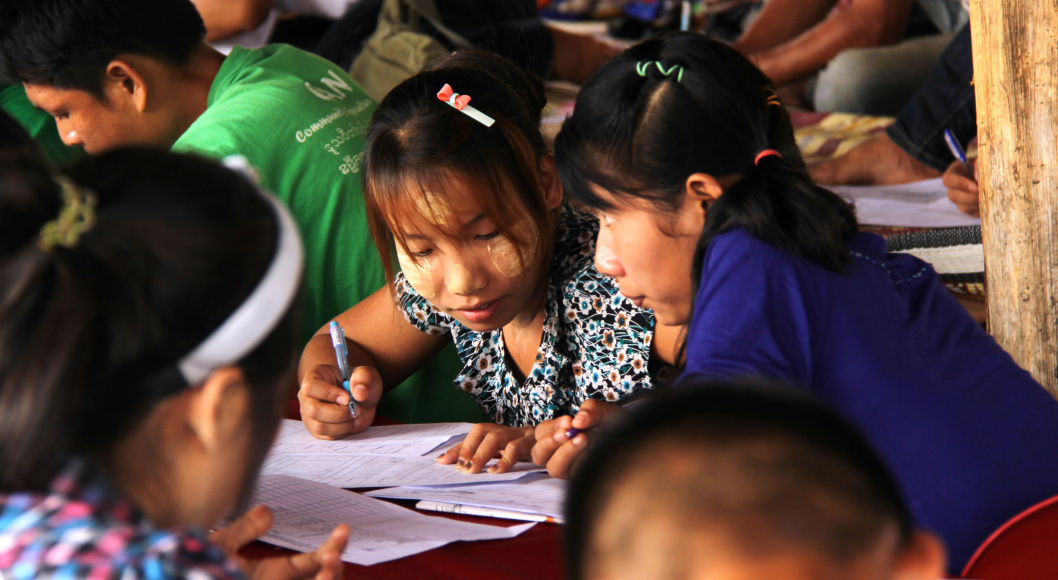The Pathways to Accredited Centers for Education (PACE) project worked with seven communities and over 500 parents to ensure that more than 1,000 migrant children could continue to access quality, recognized education in a safe environment. Within these communities, children are enrolled in migrant learning centers (MLCs) that are not financially sustainable and not legally accredited. Gaining access to accredited education is transformative for these students, protecting them from exploitation and ensuring that skills gained at the MLCs are accepted by future education institutions and employers in Thailand and Myanmar. The project also sought to create greater financial sustainability for MLCs through creating cost sharing programs with parent teacher associations (PTAs) and improving overall parent and community engagement in the education of migrant students.
PACE spanned 26 months and reached 982 students in project year one and 1,159 students in project year two at seven migrant learning centers managed by PACE partner, the Burmese Migrant Workers’ Education Committee (BMWEC). Seven Parent Teacher Associations (PTAs) were established and/or developed with a total of 117 parent and community participants who contributed a total of 1,064,485 Thai Baht (about $32,653) in cost share to cover school running costs and teacher stipends. PTAs also conducted community outreach activities for 9,004 community members while local partner the Migrant Education Coordination Committee (MECC) reached 832 parents and community members via mobilization events where participants learned about the different pathways to an accredited education, child protection, and psychosocial support.
The PACE project was set up to complement the World Education-led education component of the Project for Local Empowerment (PLE), funded by USAID, and in particular to address specific issues identified within migrant education. World Education worked with BMWEC and other migrant education stakeholders to produce the Education Quality Framework (EQF) which was used to assess education quality within the migrant learning centers and provide data to foster improvements of teaching, record keeping, and safety within the schools.
To date, the EQF has been utilized across all 52 MLCs in and around Mae Sot. In addition, 68 teachers in project year one and 67 teachers in project year two were supported in developing new skills and improving their overall quality of teaching through targeted training and continuous support and feedback throughout the school year. This helped the PACE schools meet the minimum standard of the EQF in relation to teacher quality.


